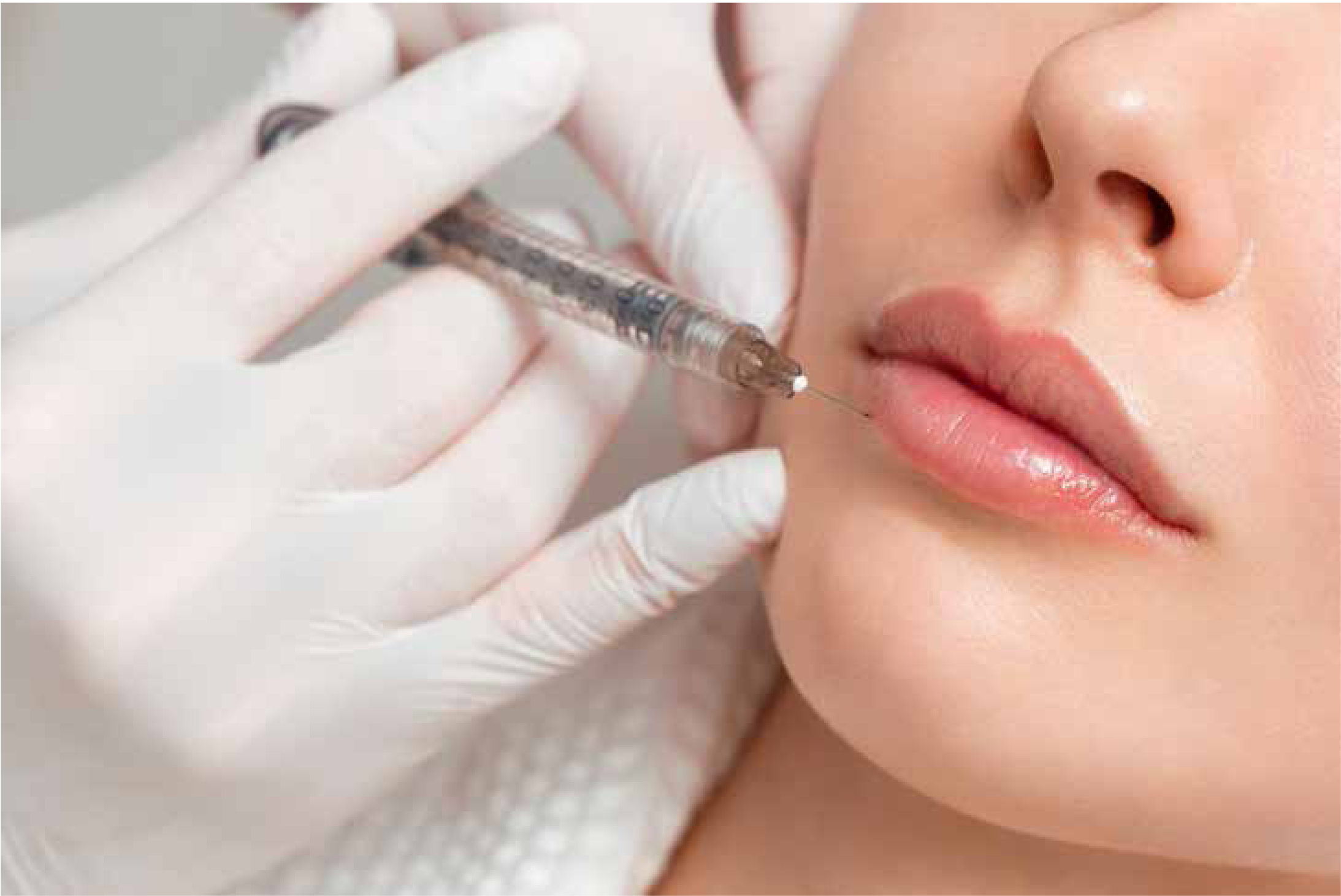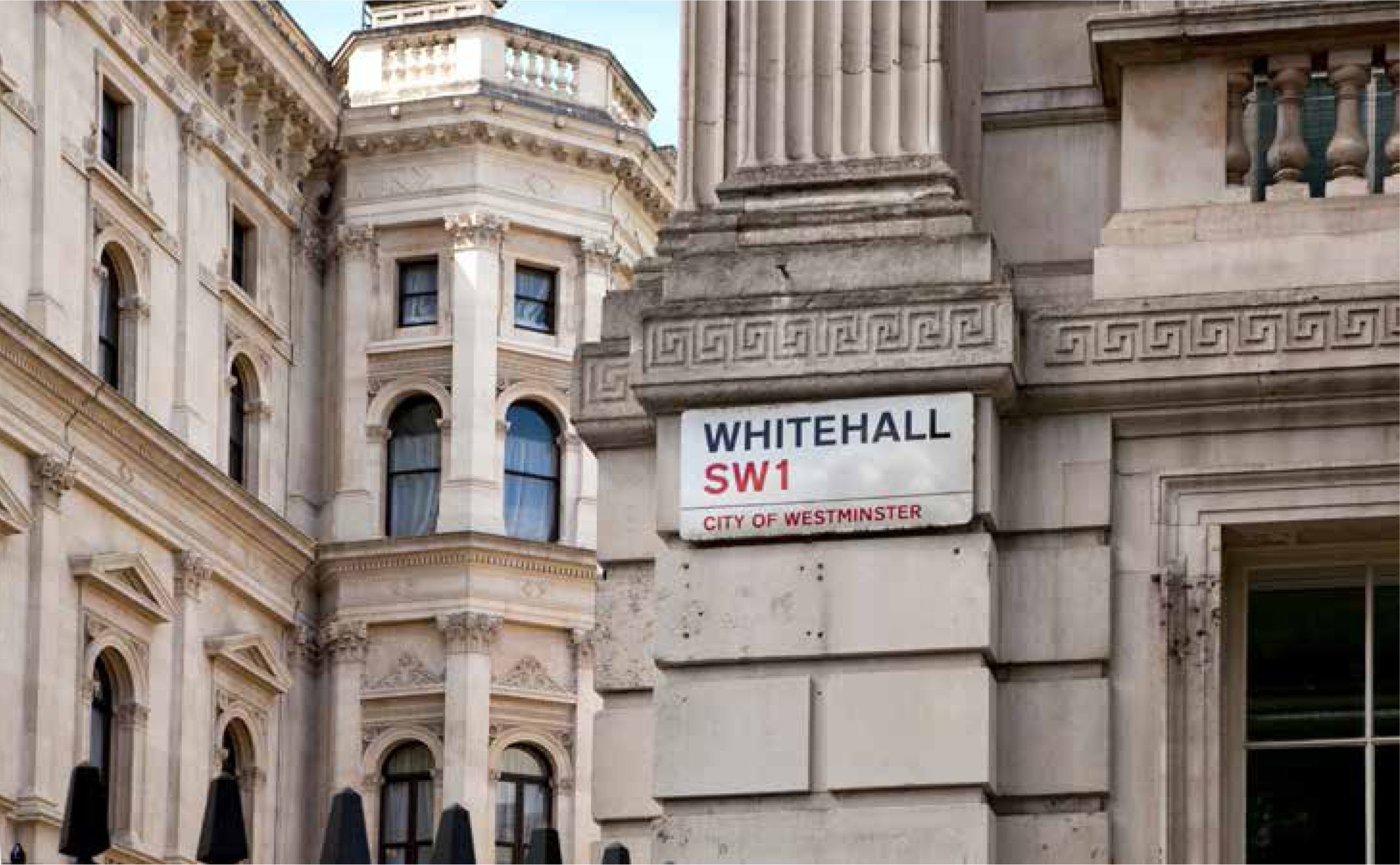

The JCCP has applauded the Government for taking this first key step to enforce statutory regulation of the non-surgical aesthetics sector in England. In so doing, the JCCP recognises the need to extend the principles enshrined within the new scheme to the devolved nations in Scotland, Wales and Northern Ireland. It has always been our opinion that the adoption of any new system of statutory reform and regulation must be schemes. The importance of ensuring that all licensed practitioners operate from appropriately licensed, hygienic and safe premises is also considered to be essential by the JCCP.
» The JCCP has been unequivocal in its response and has advised that all aesthetic procedures that are considered to be invasive, complex or present with a higher risk of complications should be restricted and limited exclusively to qualified and regulated healthcare professionals «
The JCCP has reiterated that in their opinion all aesthetic practitioners should provide evidence of full compliance with all standards that are proposed in the future, to underpin a national system of licensing for the aesthetics industry. For this to be achieved, dialogue will need to take place between the MHRA, the CQC, local government licensing authorities, the professional standards authority, professional associations, professional statutory regulatory bodies, The Institute of Licensing, Trading Standards Authorities, the Health and Safety Executive and the Chartered Institute of Environmental Health to ensure that there is no compromise to patient and public safety.
The JCCP has presented its response to the Government's first public consultation document with the aim of informing and determining the standard, type and content of the new practitioner licence. The JCCP has been unequivocal in its response and has advised that all aesthetic procedures that are considered to be invasive, complex or present with a higher risk of complications should be restricted and limited exclusively to qualified and regulated healthcare professionals. Furthermore, the JCCP urged the DHSC to put in place a robust and stringent scheme of regulatory enforcement that is supported by a legislative framework that mandates all practitioners to comply with nationally endorsed and implemented education and training standards, fit and proper person ‘tests’, robust insurance set at appropriate levels for medical indemnity, complaints procedures and access to redress schemes and compliance with the need to work from safe, hygienic and health-protected premises.
Whilst the JCCP recognises that professionally regulated healthcare professionals are required to work within a defined scope of professional practice and to adhere to their respective Codes of Practice, we consider that many of the procedures that are proposed for inclusion within the scope of the new license are complex and invasive and require members of designated healthcare professions to provide evidence that they also meet the standards for the performance of such procedures. We therefore consider that members of the public require additional assurance to confirm that registered healthcare professionals will meet the new standards set down by DHSC within the context of the new practitioner licence, whilst also recognising their right to autonomy and clinical decision-making without supervision (unless they do not possess a prescribing qualification and use prescription only medicines as part of their aesthetic practice).
» There are many healthcare professional groups that are regulated by professional statutory regulatory bodies whom we do not regard to possess the requisite competence, experience and knowledge to perform nonsurgical cosmetic procedures «
It is therefore essential that registered healthcare professionals who do not hold a nationally recognised and mandated prescribing qualification should also require supervision from a prescriber when prescription-only medicines form part of the patient's treatment plan or where they may otherwise become necessary to treat complications. This will require further determination and consideration. The JCCP also calls upon the DHSC to set out proposals and parameters to define whom they regard to be a suitable and responsible ‘professional health care practitioner’. We consider this to be a fundamental requirement since there are many healthcare professional groups that are regulated by professional statutory regulatory bodies whom we do not regard to possess the requisite competence, experience and knowledge to perform nonsurgical cosmetic procedures or to provide supervision of oversight to non-professional healthcare practitioners.


The JCCP also strongly agrees with proposals to seek significant changes to CQC regulations to include restricted high-risk, non-surgical cosmetic procedures within the scope of the CQC's registration system. We have advised that the DHSC should engage as soon as possible to determine the extent to which any proposed scheme of regulation that encompasses the more invasive and complex procedures can be enforced by the CQC in the absence of a significant change in the current scope of regulatory enforcement practice. The JCCP's response is predicated on the need for the DHSC to introduce robust powers of enforcement to ensure that non-healthcare practitioners are not permitted to administer any restrictive procedure that falls within the scope and definition of the ‘RED’ category as proposed within the consultation document.
The Care Quality Commission has provided assurance to members of the public over several decades and is regarded by many as providing assertive, consistent and diligent schemes of inspection for care delivery, premises inspection and clinical oversight. The CQC also possesses legally enforceable powers of inspection which we consider are fit for purpose for deployment and extension into the nonsurgical aesthetic sector to ensure that all practitioners who provide complex and invasive procedures are professionally legally accountable for their actions. The importance of CQC inspection regimes also leads to the determination of a national evidence base to inform requirements for service improvement and would also provide the opportunity for a more robust approach to the delivery of uniform standards across the aesthetic sector and also drive out unwarranted variation.
In order to achieve these objectives, the JCCP considers that the CQC will also need to expand its definition of the ‘Treatment of Disease, Disorder or Injury’ (TDDI) to provide scope for the inclusion of a range of aesthetic procedures that are either ‘medical’ or ‘medically related’ in respect of their description/definition and the use of medicines in accordance with the terms of their licenses
The JCCP has always advocated that a risk-stratified approach to differentiating between various categories of aesthetic procedures should be implemented and as such support government proposals to introduce a ‘Red’, ‘Amber’ and ‘Green’ risk stratified system. Any risk stratified system of classification should be predicated upon a measured, and proportionate approach, regarding the extent to which the designated aesthetic procedure presents a risk to the emotional, psychological, and/or physical health and wellbeing of the individual. The JCCP does not support the imposition of unnecessary or disproportionate oversight measures where procedures are considered to be controlled or mitigated by other means, such as by the manufacture and utilisation of ‘failsafe devices’, many of which are used within the cosmetics industry, as opposed to the aesthetics industry.
Central to our response is the need for the Government to ensure that all procedures that involve the use of a prescription only medicine that is part of the actual procedural application, as an adjunctive requirement, such as the use of lidocaine or adrenaline, or any procedure that could involve the use of a prescription-only medicine to manage an urgent complication arising from an aesthetic procedure should be supervised by a professionally regulated prescriber who is present on site when the procedure itself is conducted. Should this not be agreed, we consider that any such procedure should be moved to the Government's proposed ‘Red’ category in the interests of public protection and patient safety.
» It is considered necessary to define what is meant by supervision and oversight, and also to determine who could be considered to be an appropriate supervisor for specific procedures «
Furthermore, it is considered necessary to define what is meant by supervision and oversight, and also to determine who could be considered to be an appropriate supervisor for specific procedures. The JCCP has already advised in this response that nationally regulated prescribers should be the only persons to supervise any procedure that involves the use of a prescription-only medicine. The concept of supervision in its own right, however, will also need to be determined in accordance with a risk assessment undertaken for each of the procedures that are determined to be included under the ‘Amber’ category, on a procedure-by-procedure basis. The JCCP considers that a proportionate approach to the definition of supervision should be taken on the basis of risk to members of the public related to the level of complexity, invasiveness and the potential for complication that the procedure itself might present, or where there is consistent evidence of abuse of or lack of compliance with current regulations. The definition of supervision and oversight also needs to unequivocally determine where supervision should be provided on site, under the ‘line of sight’, remotely by telephone contact, or by some other means (such as peer or team supervision).

» We consider that all practitioners should be encouraged to undertake and engage in peer review and ongoing CPD and, where possible, to join online ‘communities of good practice’ to remove some of the challenges associated with isolated practice «
The JCCP is also aware that a number of procedures that are currently included in the three categories require further examination and evidence to confirm which category they should ultimately reside within. We refer specifically, for example to procedures, relating to lasers and light, chemical peels, and those procedures that rely on the use of devices, many of which have been produced with self-limiting controls to mitigate potential harm. This is a highly complex area that will require further consideration. We recommend therefore that further enquiries (regarding scope, parameters and operating principles) are undertaken in the areas of, for example, lasers and light, radiofrequency and electrocautery with the aim of determining which category they should fall within prior to agreeing their final allocation within the three tier system. We also have significant concerns regarding the use of the generalised term ‘dermal fillers’ which we consider must only be administered at the very least under the direct supervision of an appropriately trained and experienced healthcare profession prescriber (with some procedures being restricted within the ‘Red’ category under CQC oversight). We regard there to be significant and varied issues with regard to the manufacture, supply and administration of such devices.
We also recognise that there will be an increasing number of procedures that will enter the market over the next few years, which would need to be included within the concept and principles of the practitioner license, and as such, ‘future proofing’ will be essential. Therefore, whilst at this stage it is important to list specific procedures by name, it will also be important to ensure that the adoption of this approach does not restrict the opportunity to add additional procedures as they emerge in the future.
Whilst not being a prescribed requirement within this consultation document, we consider that all practitioners should be encouraged to undertake and engage in peer review and ongoing CPD and, where possible, to join online ‘communities of good practice’ to remove some of the challenges associated with isolated practice in the industry, and to encourage openness, transparency, and the reporting of potential complications and so on. We also consider that all laser-related procedures should be reviewed prior to attribution to any category by a Laser Protection Advisor. The adoption of this additional protective measure would lead to uniform compliance with nationally approved standards in alignment with current special treatment licenses.
The JCCP considers that ongoing monitoring and evaluation will be required to ensure that scope exists to adjust the inclusion and exclusion criteria applied for the ascription of specific aesthetic procedure to any designated category. Reviews need to be undertaken periodically and should be based on the emergence of user feedback, public opinion, manufacturer and product/clinical data to inform the continued ‘fitness’ and suitability for inclusion within any designated category. Provision for moving procedures between categories in the future should also be built into the regulatory scheme.
Further clarification is also required in respect of practitioners that offer ‘mobile’ services. It is the JCCP's view that all licensed procedures should only be provided in designated premises that have been inspected for the purposes of the licence, and from premises that comply with the requirements of the procedures offered (and where the practitioner is available to provide emergency aftercare if complications arise). The JCCP does not support mobile working whereby practitioners attend client's own homes for the purposes of administering cosmetic procedures.
The JCCP also supports the DHSC's recommendation in the interests of patient safety and public protection. Implementing a minimum age requirement of 18 years for all of the procedures to be included in new licensing scheme is considered to be essential for cosmetic purposes, except by medical practitioners or by another healthcare professional on the instruction of a medical practitioner as is currently the case under the Botulinum Toxin and Cosmetic Fillers (Children) Act 2021 s1(4).
Finally, we advise that our response is predicated on the principle that the DHSC will work to ensure that a legally enforceable and robust system of regulation is implemented. It is important to ensure that the new licensing requirements are accompanied by legal sanction that is enforceable in the context of legal interpretation to assist local authority health and safety officers (and others) to take appropriate action, and to restrict practice where infringements are identified. This will require the determination and implementation of rigorous penalties and enforcement measures targeting individuals who do not operate from safe premises and/or perform these treatments without possessing the necessary qualifications, expertise and conditions.



